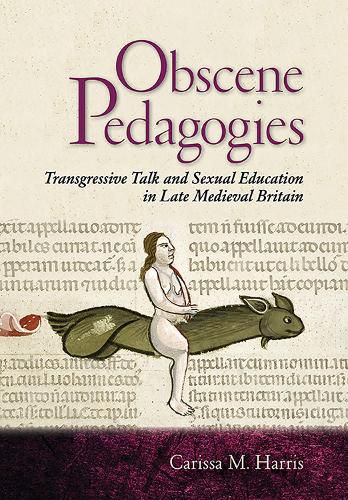Readings Newsletter
Become a Readings Member to make your shopping experience even easier.
Sign in or sign up for free!
You’re not far away from qualifying for FREE standard shipping within Australia
You’ve qualified for FREE standard shipping within Australia
The cart is loading…






In Obscene Pedagogies, Carissa M. Harris investigates the relationship between obscenity, gender, and pedagogy in Middle English and Middle Scots literary texts from 1300 to 1580 to show how sexually explicit and defiantly vulgar speech taught readers and listeners about sexual behavior and consent.
Through innovative close readings of literary texts including erotic lyrics, single-woman’s songs, debate poems between men and women, Scottish insult poetry battles, and The Canterbury Tales, Harris demonstrates how through its transgressive charge and galvanizing shock value, obscenity taught audiences about gender, sex, pleasure, and power in ways both positive and harmful. Harris’s own voice, proudly witty and sharply polemical, inspires the reader to address these medieval texts with an eye on contemporary issues of gender, violence, and misogyny.
$9.00 standard shipping within Australia
FREE standard shipping within Australia for orders over $100.00
Express & International shipping calculated at checkout
In Obscene Pedagogies, Carissa M. Harris investigates the relationship between obscenity, gender, and pedagogy in Middle English and Middle Scots literary texts from 1300 to 1580 to show how sexually explicit and defiantly vulgar speech taught readers and listeners about sexual behavior and consent.
Through innovative close readings of literary texts including erotic lyrics, single-woman’s songs, debate poems between men and women, Scottish insult poetry battles, and The Canterbury Tales, Harris demonstrates how through its transgressive charge and galvanizing shock value, obscenity taught audiences about gender, sex, pleasure, and power in ways both positive and harmful. Harris’s own voice, proudly witty and sharply polemical, inspires the reader to address these medieval texts with an eye on contemporary issues of gender, violence, and misogyny.